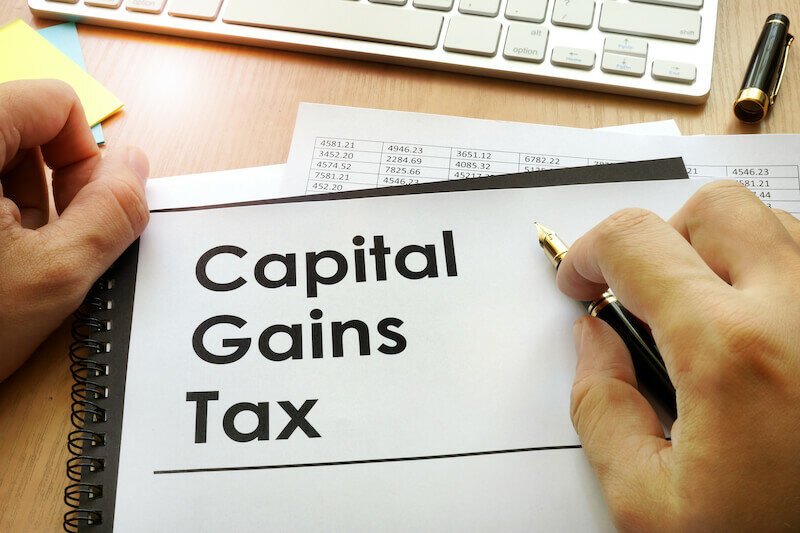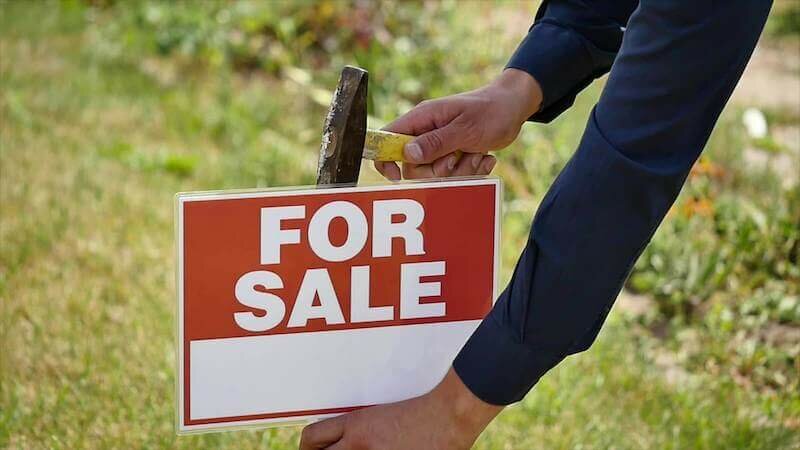Selling a house involves many things to consider, “How should I sell my house?” “Should I hire a real estate agent?” “Should I spend money on repairs”? Which are all great questions to ask. When you start to dig a little deeper, you probably will come across something else to account for when selling a house, and that is the Wisconsin capital gains tax on real estate.
Yes, besides all the other things to consider when it comes to selling a house fast for cash in Milwaukee and moving, you will need to determine if you will owe a capital gains tax. What are capital gains taxes? And how much is capital gains tax in Wisconsin, anyway?
When it comes to taxes, they can be confusing to understand. To make it easier, we have compiled some great information about capital gains tax in Wisconsin to prepare you for what’s ahead when considering selling your home.
What Is The Capital Gains Tax In Wisconsin?

What Are Capital Gains Taxes?
To better understand what capital gains taxes are, let’s explain what a capital gain is. A capital gain is the profits you make from selling assets such as your car or Milwaukee house – as well as stocks, bonds, and other investments. These amounts are taxed only after the item is sold.
So capital gains tax is a fee you pay when you sell an asset that has increased in value since you purchased it. Your capital gains tax rate can range from 0%, 15%, or 20%, depending on your income and tax status. Individual belongings are taxed at different rates determined by what they are and the situation. But really, any property you own is subject to capital gains tax if you sell it for more than the original purchase price.
To give you an idea of how to look at capital gains, here is a simple example. Let’s say you bought your home for $180,000, and you sold it for $200,000. Your profit, $20,000 (the difference between the two selling prices), would be your capital gain, and it is subject to the capital gains tax in Milwaukee.
The good news, though, you only pay the capital gains tax after you sell an asset. So, let’s say you bought your home two years ago and it’s increased in value by $15,000. You wouldn’t need to pay the tax until you sell the house.
How Are Capital Gains Taxed?
There are two types of tax rates that apply to capital gains imposed on a real estate sale and depending on how long you have occupied and owned the house:
- Short-term capital gains taxes apply to a home you’ve owned for less than a year. Unfortunately, short-term gains will be taxed at the same rate as your regular income, making these rates higher.
- Long-term capital gains taxes apply to a property owned for longer than 12 months. These are generally lower, capped off at 20% as established by the American Taxpayer Relief Act of 2012. In some cases, you may even qualify for a full exemption or a 0% tax rate.
How To Figure Out How Much Your Capital Gains Tax Is
The first thing you should determine is if you’re dealing with a short- or long-term capital gain. In general, the rule of thumb is if you’ve had the property for less than a year, it would be a short-term gain, and anything after that point is considered long-term.
However, there are exceptions where other rules may apply for certain classes of assets, like gifts or inherited property. To determine if it is a short term or long term asset, the dates are calculated from the day after the original purchase to the property’s sale date for tax purposes.
The next thing to figure out is how much income you made over the previous year and your filing status because this will help determine your tax bracket and the appropriate rate.
Once you determine that information, you will need to find out what asset class you fall into and the capital gains tax rate. While most long-term capital gains are taxed at rates of up to 20% based on income, there are situations in which higher rates apply.
To get a better idea of what your capital gains tax in Milwaukee will be, check out this capital gains calculator.
Short Term vs. Long Term Capital Gains
If you need to pay Wisconsin capital gains tax, it’s good to know the date you bought and sold your property. The reason being there are different tax strategies for long-term and short-term investments.
Short Term
A home is considered a short-term investment if you own it for less than a year before selling it. Unfortunately, there are no special tax considerations for capital gains made on short-term investments. Instead, the government counts any profit you made on the home as part of your ordinary income. So one way to minimize your tax burdens with short-term sales is to account for your expenses and deductions carefully.
Long Term
Long term capital gains will apply if you have owned your home for more than a year. A little good news though, long-term capital gains tax rates are much lower than the corresponding tax rates for standard income. And you may not need to pay the tax at all if you make less than the minimum amount.
So, the percentage amount you pay on your capital gains will depend on your filing status and how much money you made last year.
How To Avoid A Capital Gains Tax On Your Home In Wisconsin
Here are a few ways to minimize your capital gains tax obligations. Using these tips may reduce the amount you would owe.
Tips For Selling A Primary Residence
To qualify as a primary residence, you must live in your home for at least two years out of the last five years. Also, the two years that you live in your property do not need to be consecutive.
Furthermore, you don’t need to own your home for at least five years to claim an exemption from the capital gains tax. For example, if you own your house for three years and live in it for two years before selling it, it’s still considered a primary residence. You may not need to pay the capital gains tax when you sell the home in this situation.
You don’t need to pay up to $250,000 ($500,000 for married couples filing jointly) in capital gains on your house sale if you meet three conditions:
- You have lived in your residence for the last two years. Capital gains can only be deducted on your primary home. You must live in your home for at least two years out of the previous five years before selling it to qualify for an exemption. The years you’ve lived in the house don’t have to be consecutive.
- You have owned your home for a minimum of two years. You will need to have owned your home for at least two years before you can warrant an exemption. If you haven’t owned your house for at least two years, you’ll pay the much more costly short-term tax rate.
- If you haven’t recently claimed another exemption. Typically, you can’t claim another exemption if you’ve already claimed an exemption during the last two years.
If you meet all three guidelines above, you will be able to exclude some or all of the capital gains tax when you sell your home.
Just remember this exemption only affects your primary residence. Say you were to sell your second house or investment property to anyone, including a relative you were trying to help out, you would have to pay full capital gains taxes.
Tips For Selling Any Real Estate In Wisconsin
Whether you’re selling your primary home or an investment property, take careful note of how much money you spend. You can deduct any repairs or renovations you made to an investment property to improve the home’s final selling price. You will want to keep documentation such as bills, credit card statements, deeds of sale, and any other similar papers to prove how much you spent. These documents will be helpful to have on hand if you’re audited.

Summary: Capital Gains Tax In Wisconsin When Selling A House
Regardless if you will need to pay capital gains tax or not, finding ways to save money on the sale of your house is always a plus. However, if you likely owe Wisconsin capital gains tax on your home sale, remember you can deduct renovations or repairs, but that is if you have the money to do those updates in the first place.
Even if you profit from your house’s sale, it will require money out of pocket for improvements to get top dollar for your home before you sell. Banking on a quick home sale to pay back any cash used to renovate your house is risky. Besides, depending on the updates you need may take months to complete before selling your home.
Furthermore, if working with a real estate agent, you will need to also pay 6% in commissions for a realtor to sell your home. Again eating into any profits, you will be making off the sale of your home.
Not to mention, investing your own time and money into a house you’re about to sell, is hard to justify.
If you’re looking for ways to cut down on expenses when selling a house, considering selling to a home investor would be an excellent idea. The advantages of selling to a cash home buyer would include:
- They pay in cash-no waiting on buyer financing or an inspection contingency.
- They can close quickly- no guessing when your house sells, they can close in as little as 7 days.
- They can work with your schedule- You get to choose your closing date and move when it is convenient for you.
- They buy houses as-is- you wouldn’t have to spend any money or deal with the hassle of home repairs and cleaning ins.
- They are no transaction costs- No realtor commissions, no closing costs, or fees because you won’t need to hire a realtor to sell your home to a homebuyer, which saves you a lot of money.
- They can give you a cash offer for your house today! Do you know a traditional buyer that can do that?
If you are considering selling your house in the Milwaukee area, contact Cream City Home Buyers. They buy houses in any condition, with any challenges for any reason. Even if you’ll be dealing with capital gains tax in Milwaukee, you can at least save some money and time selling to Cream City Home Buyers.
Cream City Home Buyers is a local real estate investment firm and solutions company based out of Milwaukee, WI. We do our very best to provide win-win solutions to homeowners and help get them out of difficult situations by providing different selling options.
We also are a BBB, accredited business. To learn more about how it works and who we are, please visit our website. We look forward to hearing from you.
